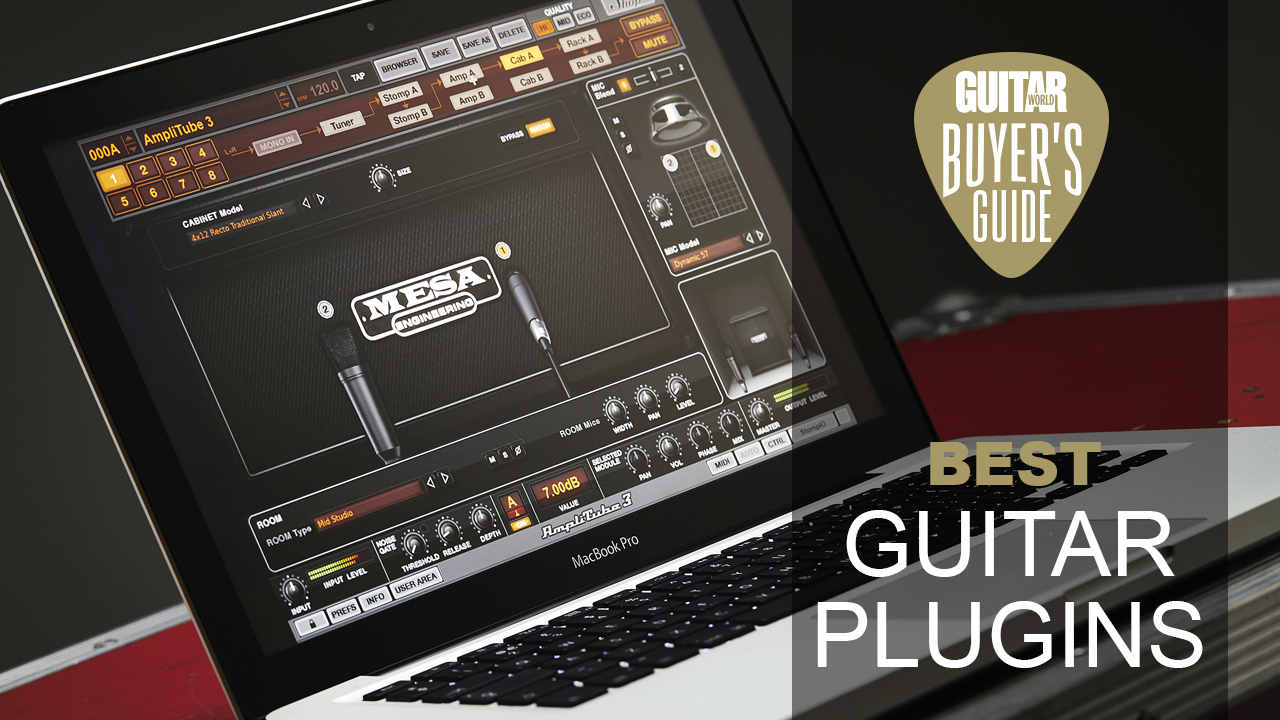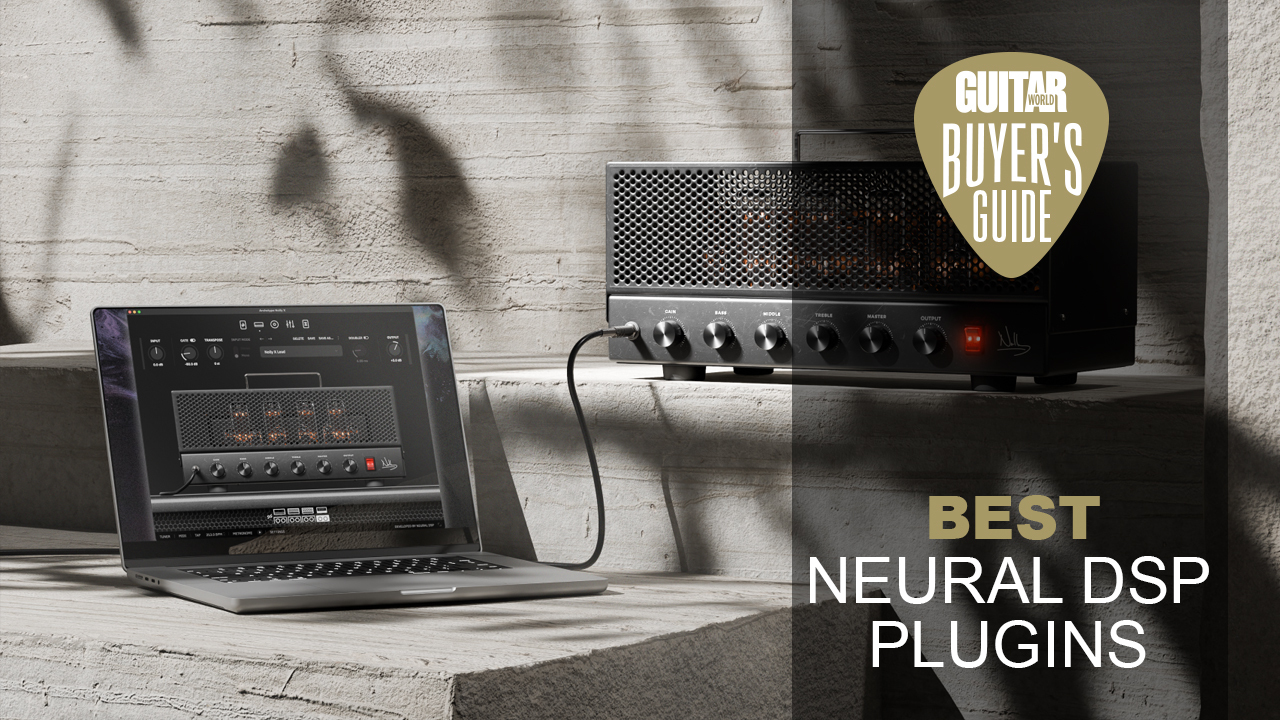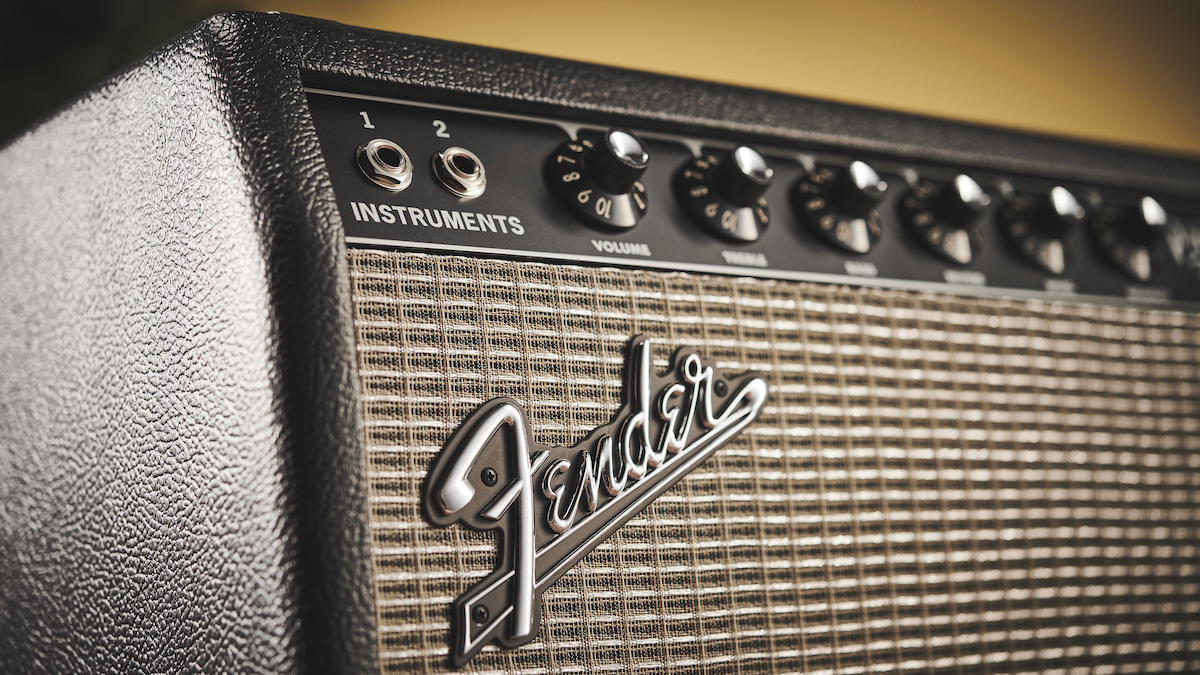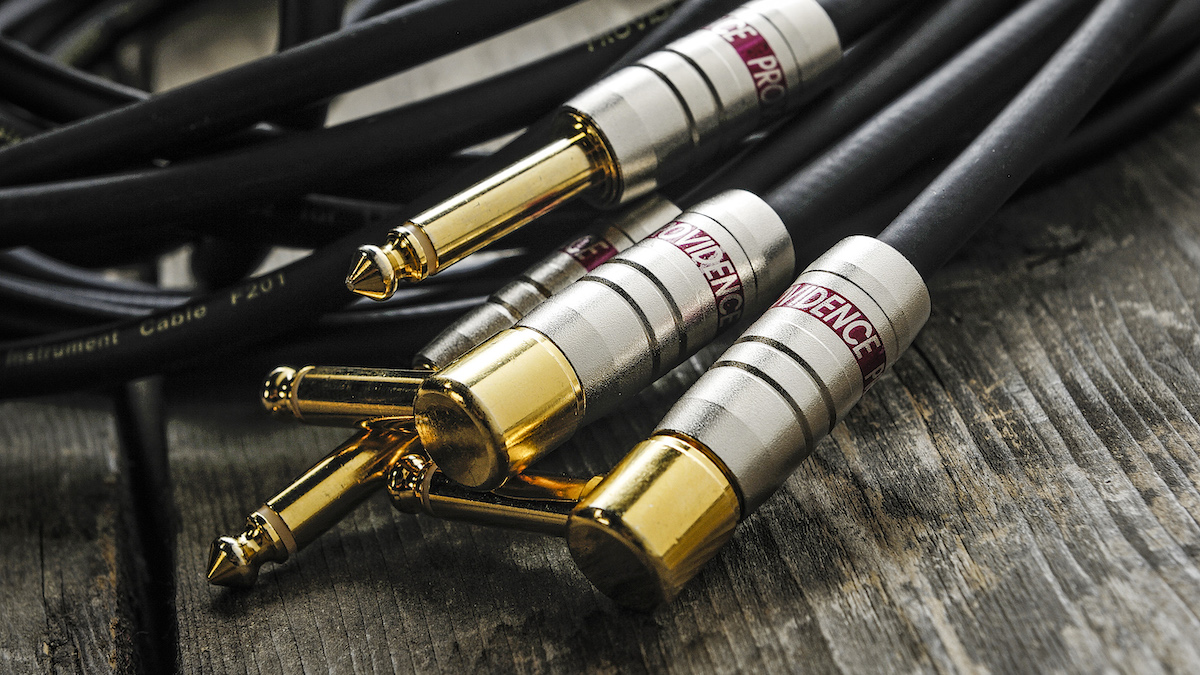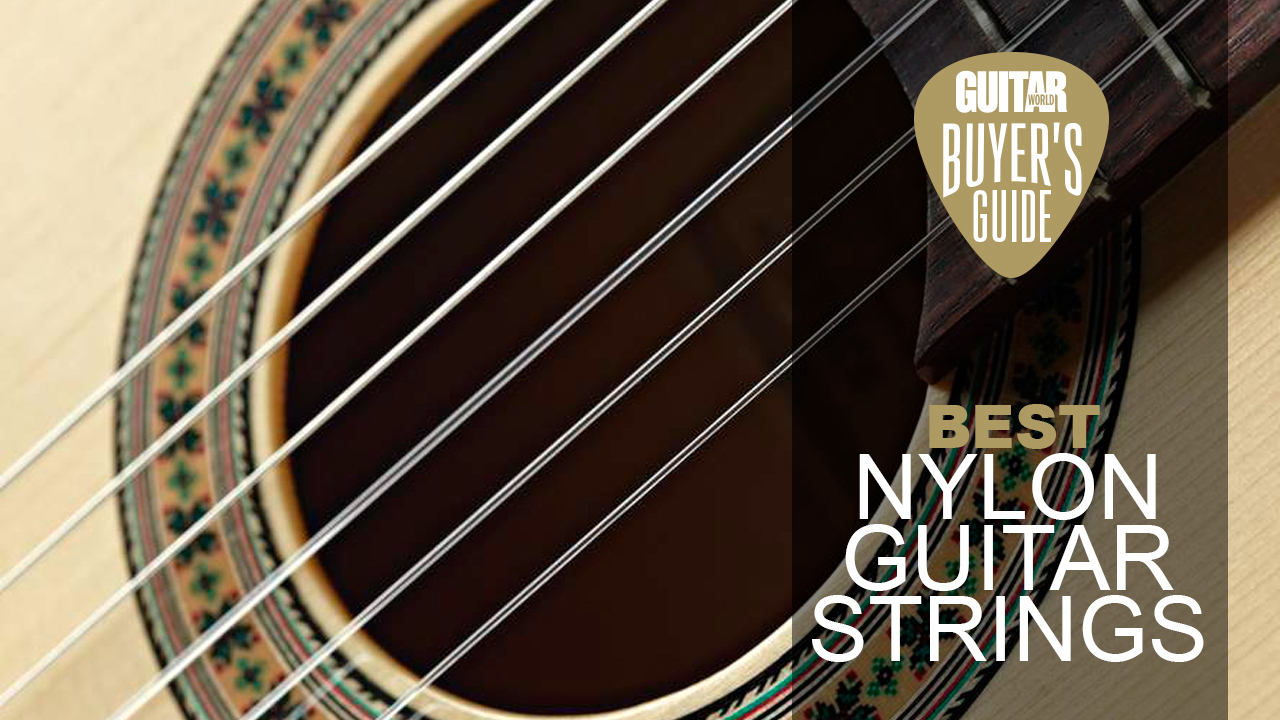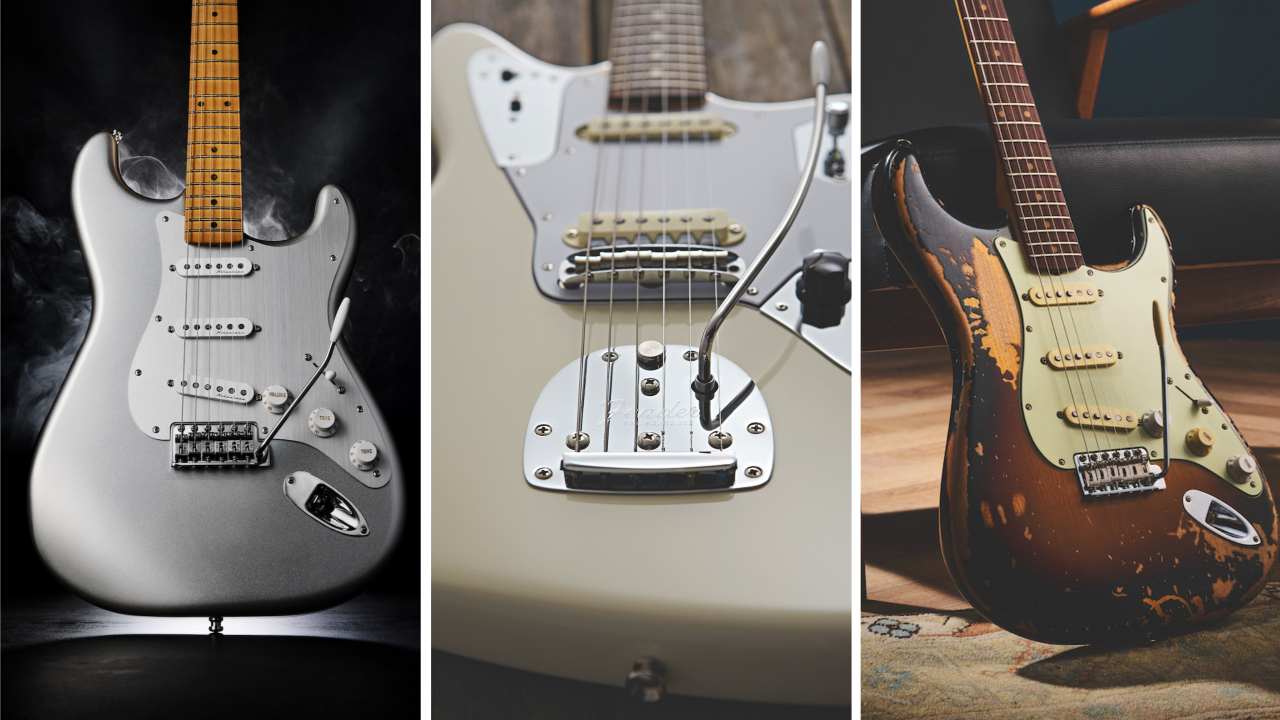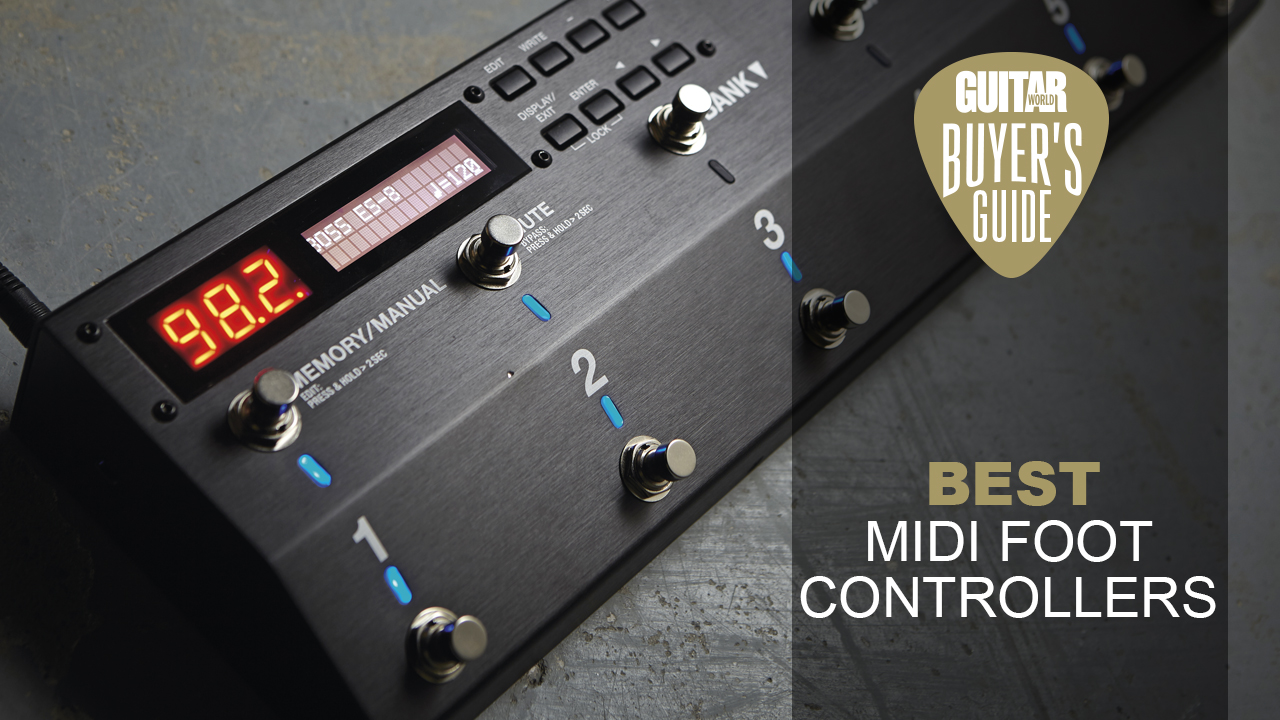10 free guitar plugins you need to download right now
On a tight budget? These free plugins will craft and hone your tone at no cost at all

One of the most common complaints about 'working in the box' on a computer is the daunting number of plugins available. This isn't helpful, especially if you're just starting out, picking and learning a DAW. You've got enough on your hands without researching which plugins deserve your hard-earned cash.
Luckily, we've got a solution for this option paralysis. Whether you're starting out, making demos or simply working on a budget, we've put together some of our favorite guitar plugins. Best of all, at the time of writing, all of these are available for free.
In this guide, we'll cover amp and pedal plugins that you can download for free, as well as production tools that will help you mix guitar tracks.
Best free plugins for guitarists: Guitar World's choice
In terms of effects, it's pretty much impossible to beat Valhalla's Supermassive delay and reverb. It's got loads of excellent presets, nearly infinite depth and works equally well on guitar, synths, or vocals. It doesn't require complex post-EQ to bed into a mix, and it's so inspiring that often throwing it on a part and clicking through a few presets is enough to totally change the vibe of a track.
On the amp side, the ML Sound Lab Amped plugins are pretty hard to beat. They come with no restrictions, no complicated unlock process and sound excellent out of the box.
In addition to the amp, you get a few IRs and effects as well. Besides the fact that the core sounds are solid and react to your playing in an amp-like way, you can throw a distortion in front and it's convincing enough to make you ditch your amp – at least for higher-gain sounds.
Advice
As a guitarist, the most interesting plugins model amps and pedals. These plugins look familiar, feel familiar, and are designed to work well with our chosen instrument.
Much of what makes a plugin work well straight out the box lies in its EQ profile. Guitars tend to center around the notes E and D, and their overtones. Not only is the guitar primarily a midrange instrument, but when it comes to the bass frequencies, the crossover into sub-bass happens part way through the scale, rather than bottoming out more cleanly around the lowest note. Luckily, although note choice isn't easy to change, the tools you're using to mix are.
As any bedroom or professional producer knows, making the guitar sound good on record is the work of more than just amp sims. Crucial ingredients include compression, and that most misunderstood tool, EQ. While most DAWs ship with a decent compressor, not all ship with an EQ that works well for mixing and mastering.
More interesting than simple utilities are effects – and here there are lots of decent free options available. Especially once you're comfortable with the ins and outs of EQ, effects plugins that are designed for either synths or vocals are easy to use on guitar.
Many need the same low-cut that you will probably be applying anyway, and stereo or modulation effects can breathe life into an otherwise static mix. As an added bonus, most in-the-box modulation effects also are less likely to have phase issues than their real-world counterparts.
Best free plugins for guitarists: product guide
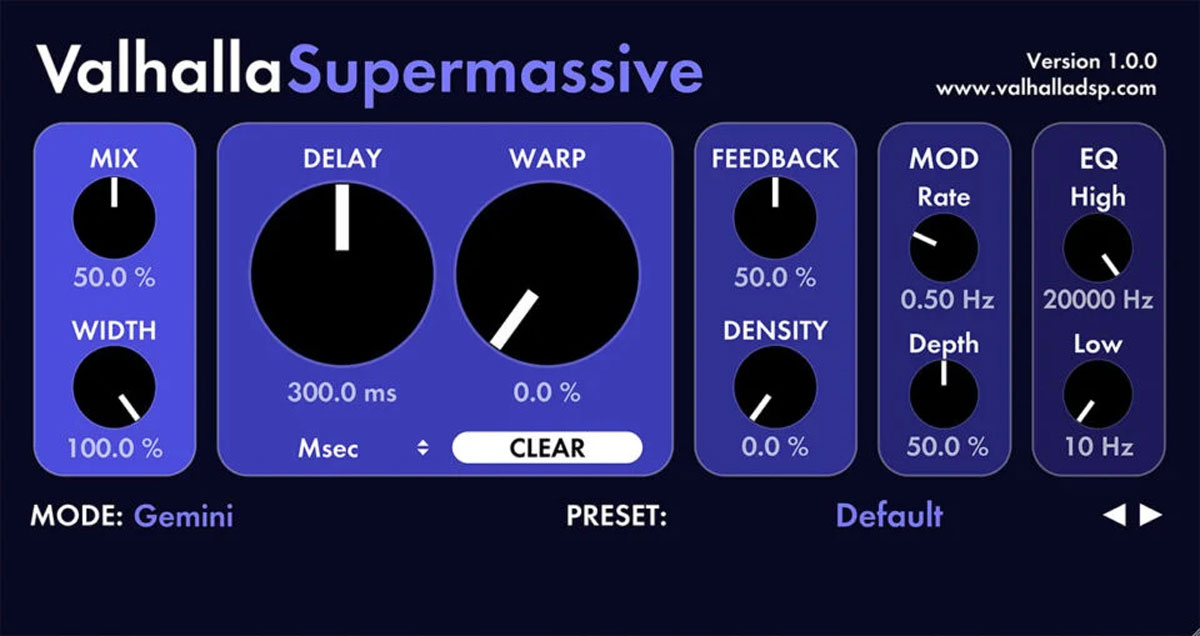
1. Valhalla Supermassive
Our expert review:
Specifications
Reasons to buy
Reasons to avoid
The Supermassive is the best free plugin available on the internet. In addition to the normal delay controls you'd expect, like feedback, mix and delay time, there's a simple but effective post EQ block.
That's not where the magic lies, however. It's got three additional controls – stereo width, warp, and a modulation block, that depending on context and preset, can totally change the character of the delay. Although it's a delay, the range of its controls takes it from reverb all the way into modern space cadet territory – think rack Lexicon or Eventide.
It has swells, patterns, strange reflections and pitch-shifts, among many other sounds that the creators probably didn't envisage it making. Flicking through the presets always proves inspiring, and the best thing is that it can even be tamed down to a more straightforward delay. Though, why would you want to do that?
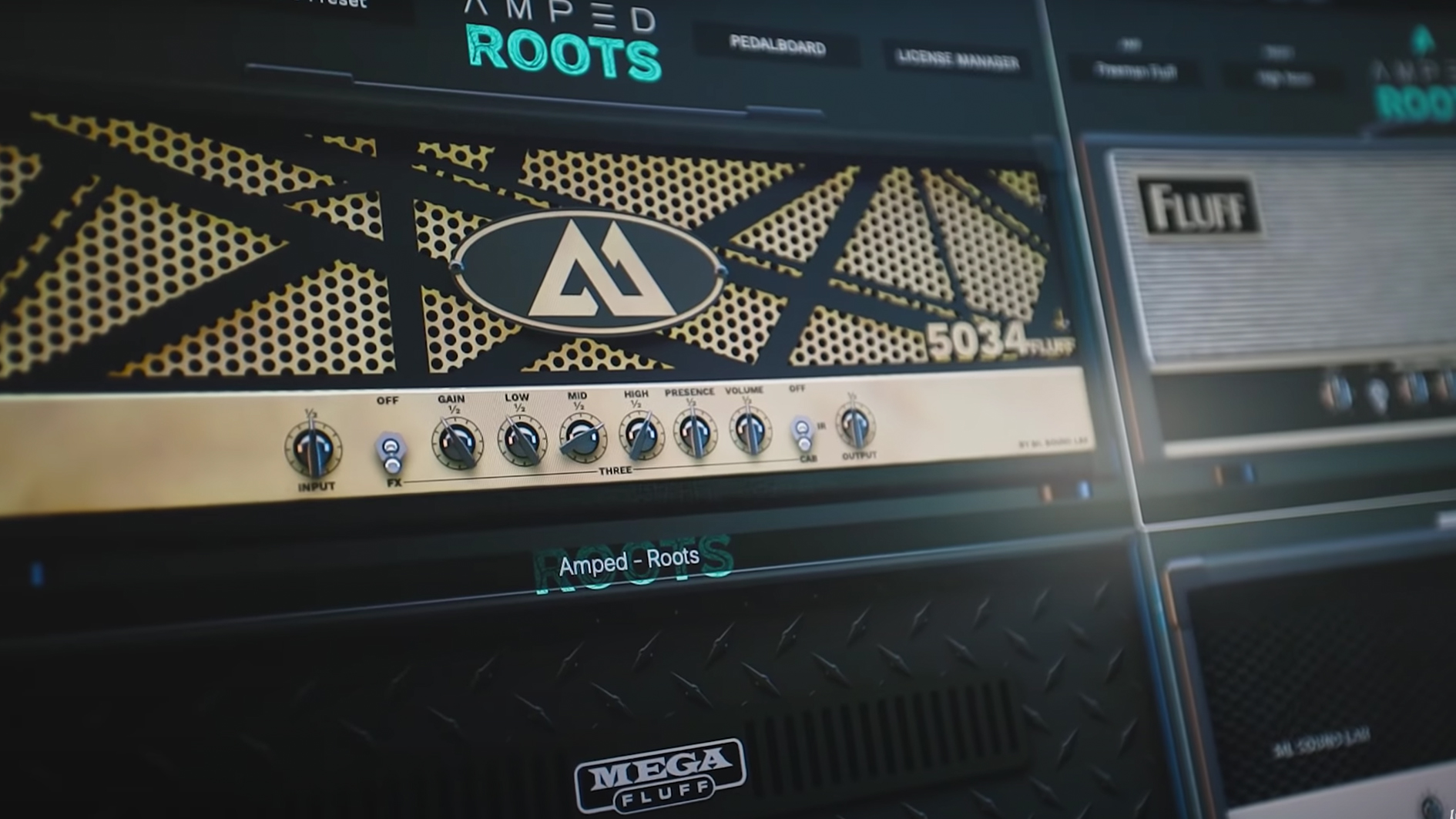
2. ML Sound Lab Amped Roots Free
Our expert review:
Specifications
Reasons to buy
Reasons to avoid
The Amped series from ML Sound Lab is heavy-duty enough to go toe to toe with the Axe-Fx and Kempers of this world, so it's perhaps surprising that the company has decided to give away any of their models for free. Either way, as part of a marketing tie-in with YouTube tone hound Ryan 'Fluff' Bruce, one of his signature amps, an EVH emulation, is available for nothing.
In terms of sound quality, it's easily as good as anything in the BIAS Amp arsenal, and takes very little dialing in to sound good. It ships with a decent IR and a chain of optional pedals, including a noise gate. However, generally we had the best results while using the included noise gate and an external drive, such as the Mercuriall TSC (which you can read about below).
As well as the Roots, there's also a free Stevie T collaboration, the Djentgod, which also sounds pretty good out of the box. Especially for, well, 'djent' sounds, the 'thall' preset sort of does what it says on the tin, for very little effort.
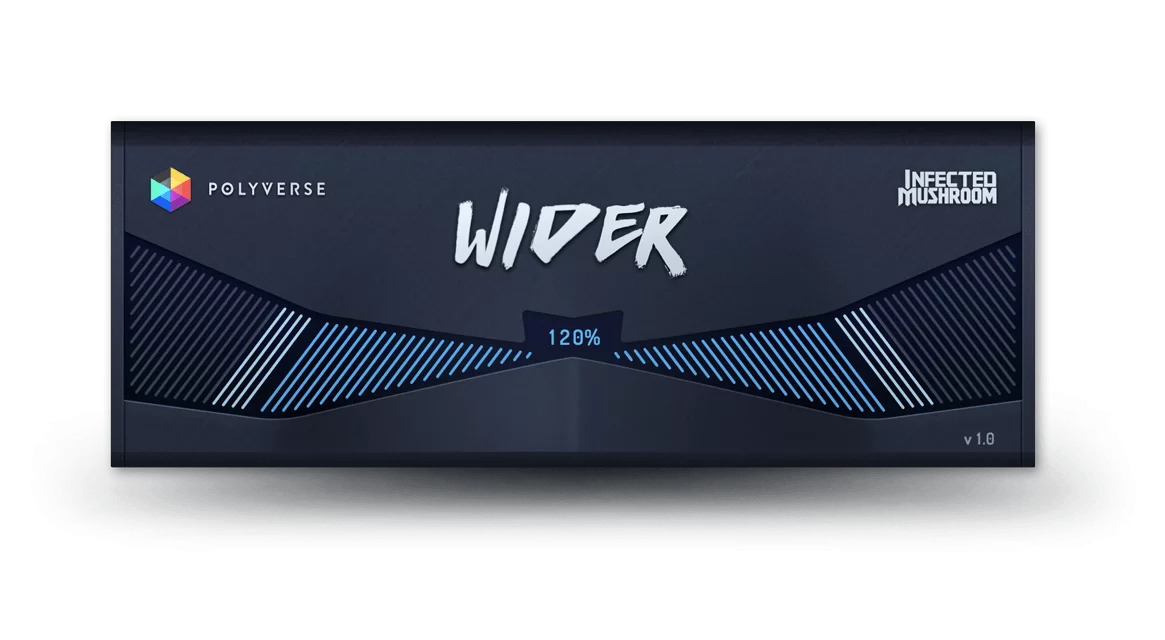
3. Polyverse Wider
Our expert review:
Specifications
Reasons to buy
Reasons to avoid
One of the cardinal sins of bad mixing is a boring stereo picture. However, it's understandable why many choose not to experiment with their stereo placement – it's easy to cause phase issues when placing tracks. Moreover, some classic tricks like using a short delay line to increase stereo spread can store up problems for the mono mix.
Luckily, Wider is designed expressly to not introduce phase issues when summed to mono, and allows you to push a mono sound source beyond the normal stereo field.
The effect is hard to describe, but when working with more impressionistic genres, being able to place wet guitar parts wide in stereo space frees up the center of the mix for leads, vocals, and bass. It's the sort of plugin that, once you have it, it will crop up on every song you make from then on.
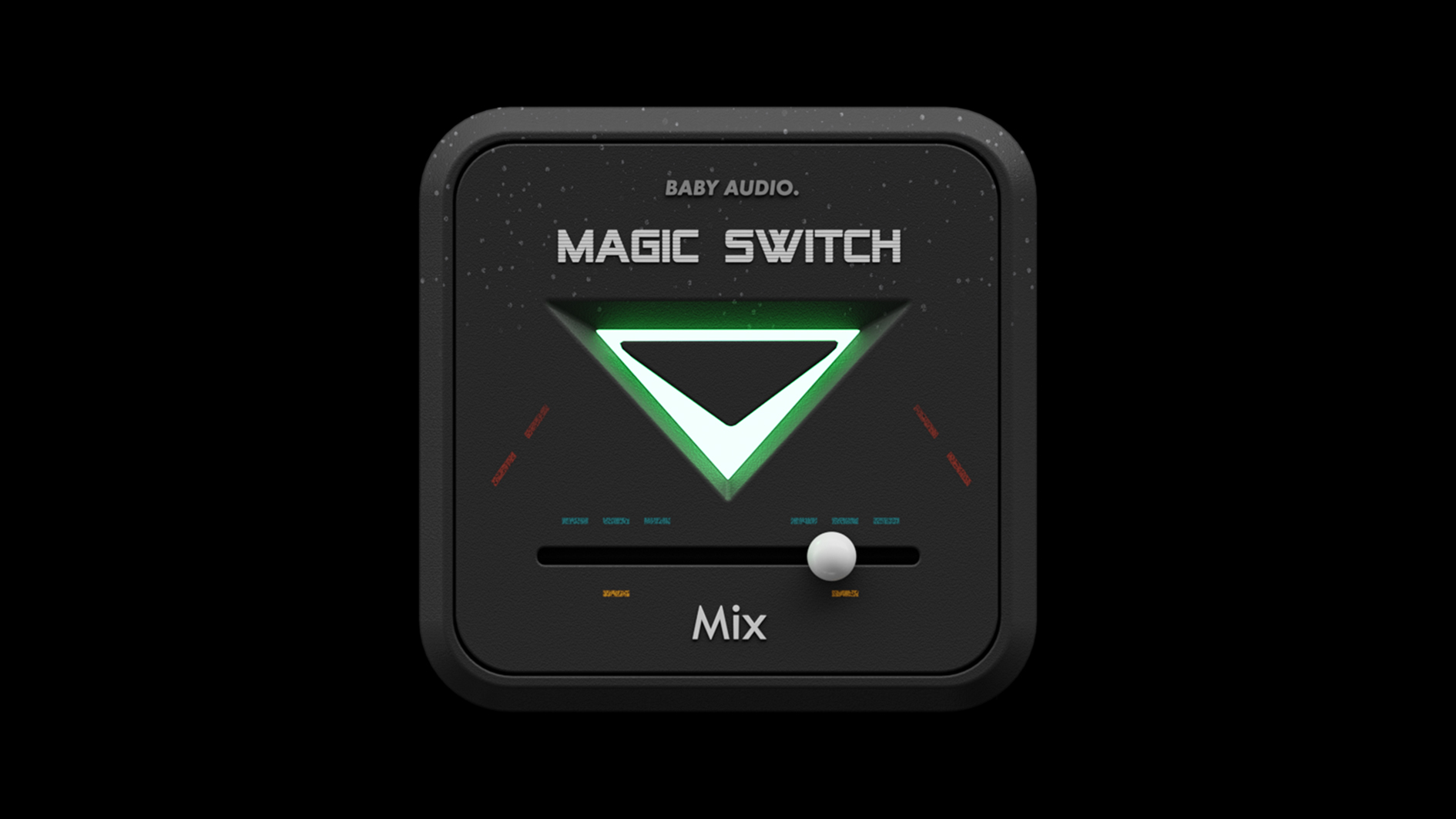
4. Baby Audio Magic Switch
Our expert review:
Specifications
Reasons to buy
Reasons to avoid
Though it's based on the legendary chorus in the Roland Juno 60 synthesizer, the Magic Switch isn't a straight-up clone. It's a little darker, a little more characterful, and it also sounds fantastic on guitar. It's got a wide, lush stereo image, and is fantastic for adding some movement to a rhythm part that needs to elevate a track.
With only two controls, a mix and a bypass button, it also forces you to use your ears as you dial it in. You'll be amazed by just how much you can get out of it.
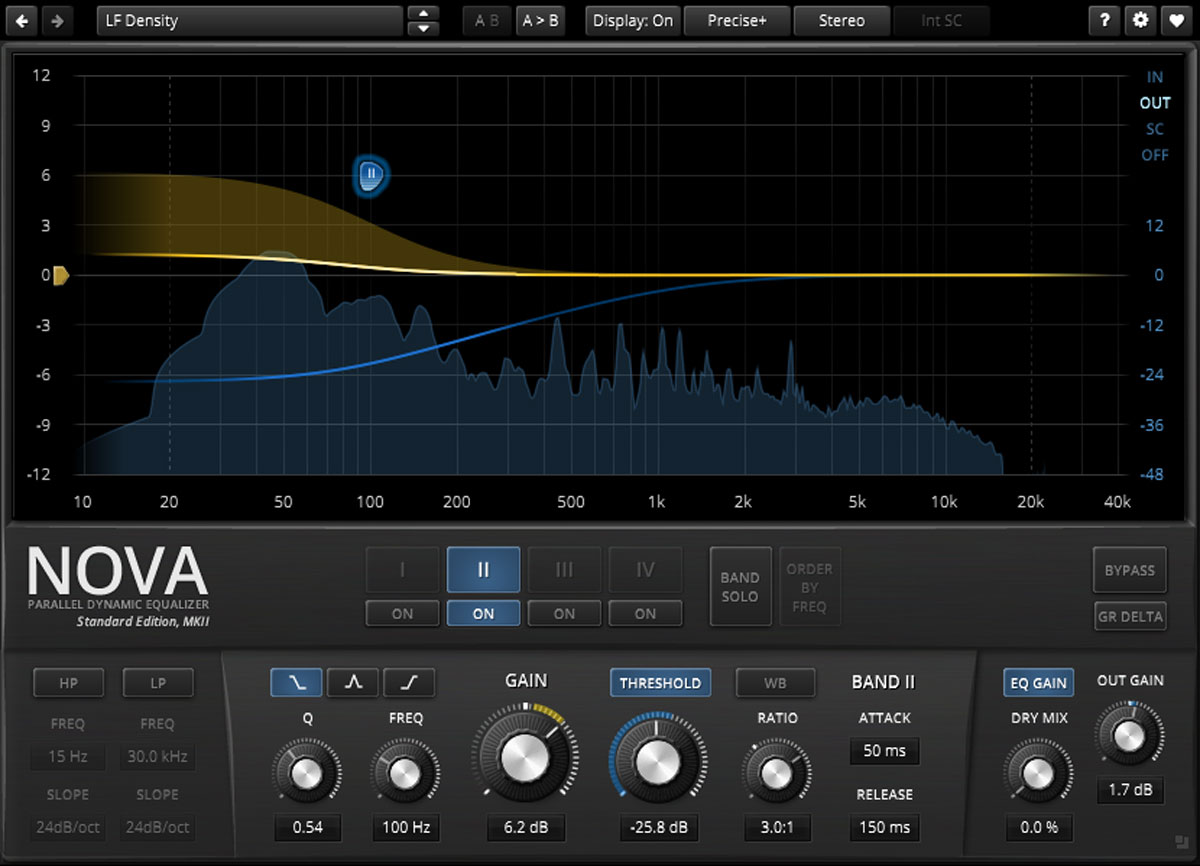
5. TDR Nova
Our expert review:
Specifications
Reasons to buy
Reasons to avoid
At first glance, the TDR Nova doesn't seem that different to the parametric EQs that most modern DAWs ship with. However, look a little closer, and you'll find that every band has a dynamics section that allows for a variety of gain manipulation techniques, beyond simple level control.
This includes frequency selective compression, wide-band compression and multi-band compression. These are all incredibly useful when bussing up and gluing together guitars in the mix, especially for taming bass-heavy chugs.
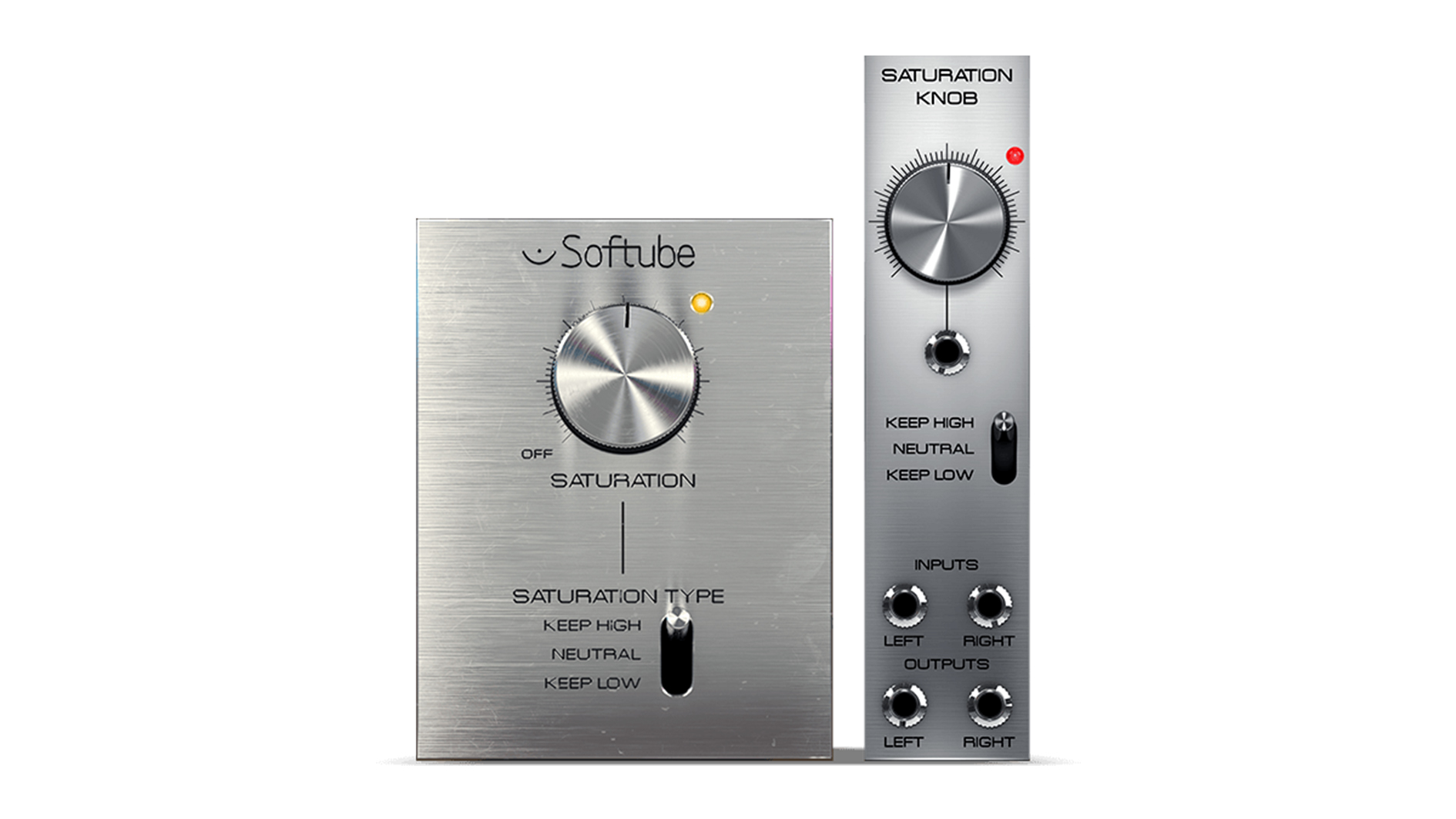
6. Softube Saturation Knob
Our expert review:
Specifications
Reasons to buy
Reasons to avoid
When bedding tracks into a mix, most audio sources benefit from a little extra saturation, and the guitar is no different. This excellent utility plugin from Softube is a straightforward way of dialing in a little extra saturation on your tracks without being overwhelmed by additional controls, or the urge to overdo it.
Crucially, it stacks well with other saturation tools, meaning it plays nice not only with amp sims, but also emulated stompboxes and other gain plugins.
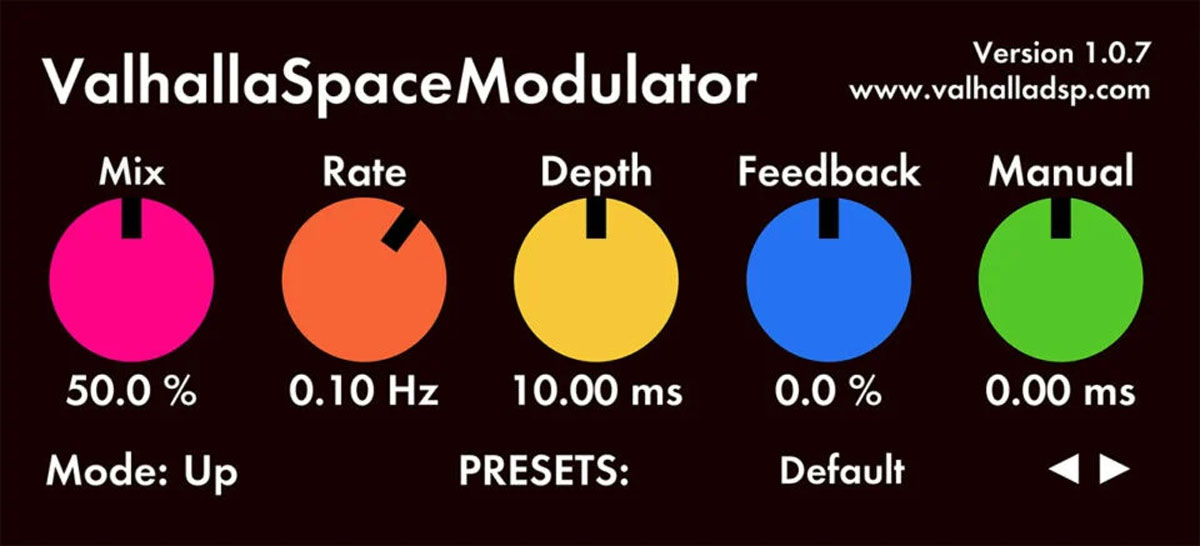
7. Valhalla Space Modulator
Our expert review:
Specifications
Reasons to buy
Reasons to avoid
While the Supermassive is definitely the biggest inducer of 'how is this free?' double takes, Valhalla has at least one more trick up its sleeve.
The Space Modulator is a simple flanger with great presets – three of which will probably see the most use. There's through zero, barber pole (also known as 'infinite') and doubling. By messing with the feedback and rate, it's possible to get strange slapback echoes and hard-to-describe psychedelic artifacts that warp the guitar signal almost beyond recognition.
Crazily, this isn't even the final free plugin that Valhalla offer – they also give away the Freq Echo, which is essentially the front plate of a Roland Space Echo with some additional features. It's a dub monster, as well as being ace for generating vintage and psych echo tones on guitar tracks.
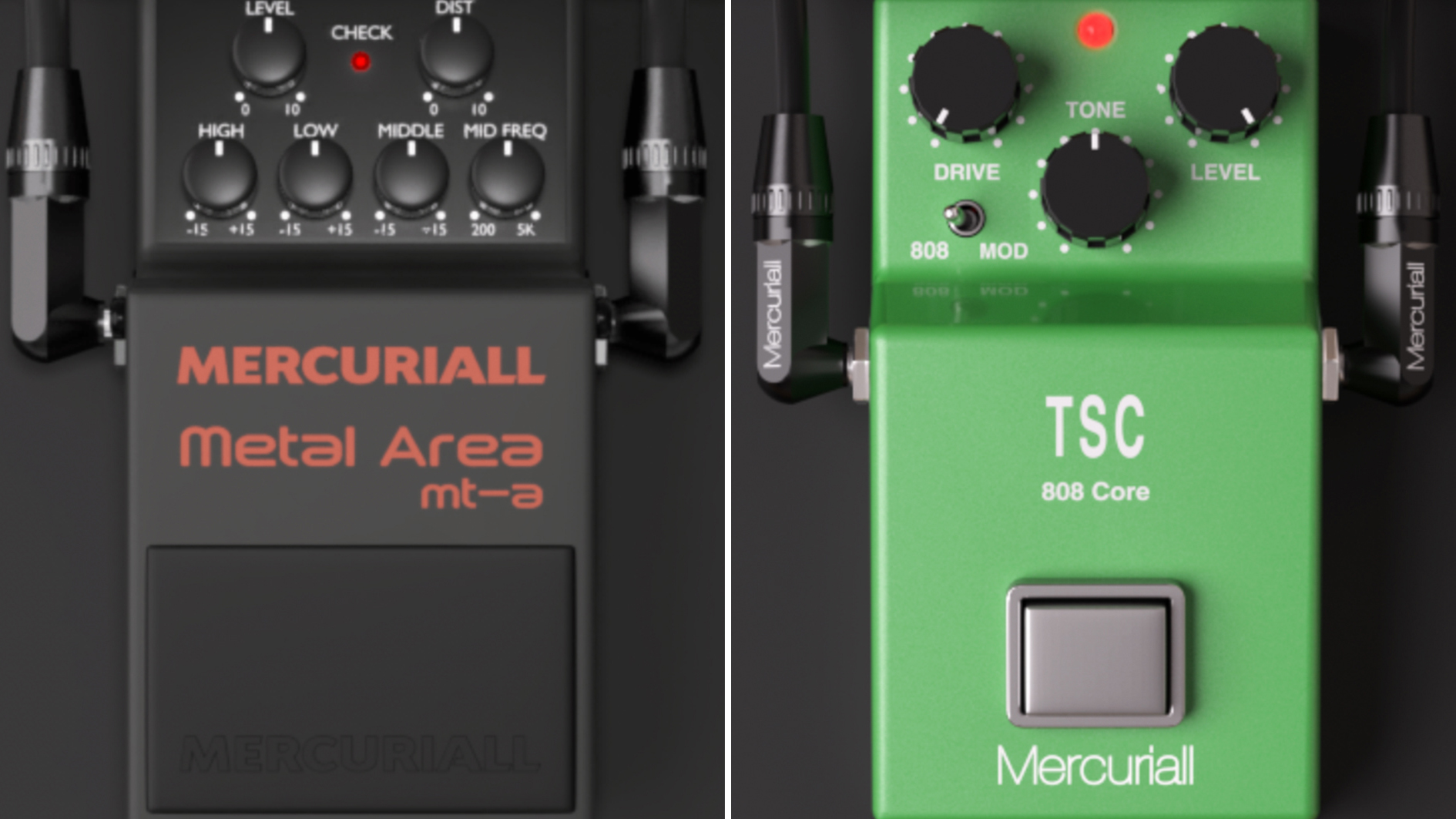
8. Mercuriall MT-A / TSC
Our expert review:
Specifications
Reasons to buy
Reasons to avoid
Although some DAWs like Logic ship with a fully featured guitar pedalboard, you might find yourself needing to push a track a little harder, or indeed smash the front-end of an amp sim into saturation.
For that, you'll need some kind of saturator. A DAW's utility gain plugin will often suffice, as will a saturator. That said, level gain is easier when the tool is EQ'd with guitar use in mind, and that's where the Mercuriall plugins come in.
Both are free, with the MT-A modeling a Boss MT-2 Metal Zone, and the TSC modeling a Tube Screamer. Generally, the TSC gets the most use, adding light saturation to guitar parts, and being used as a clean boost as part of longer chains – especially into emulated amps. The MT-A however, has powerful EQ options and works very well for distorting vocals.
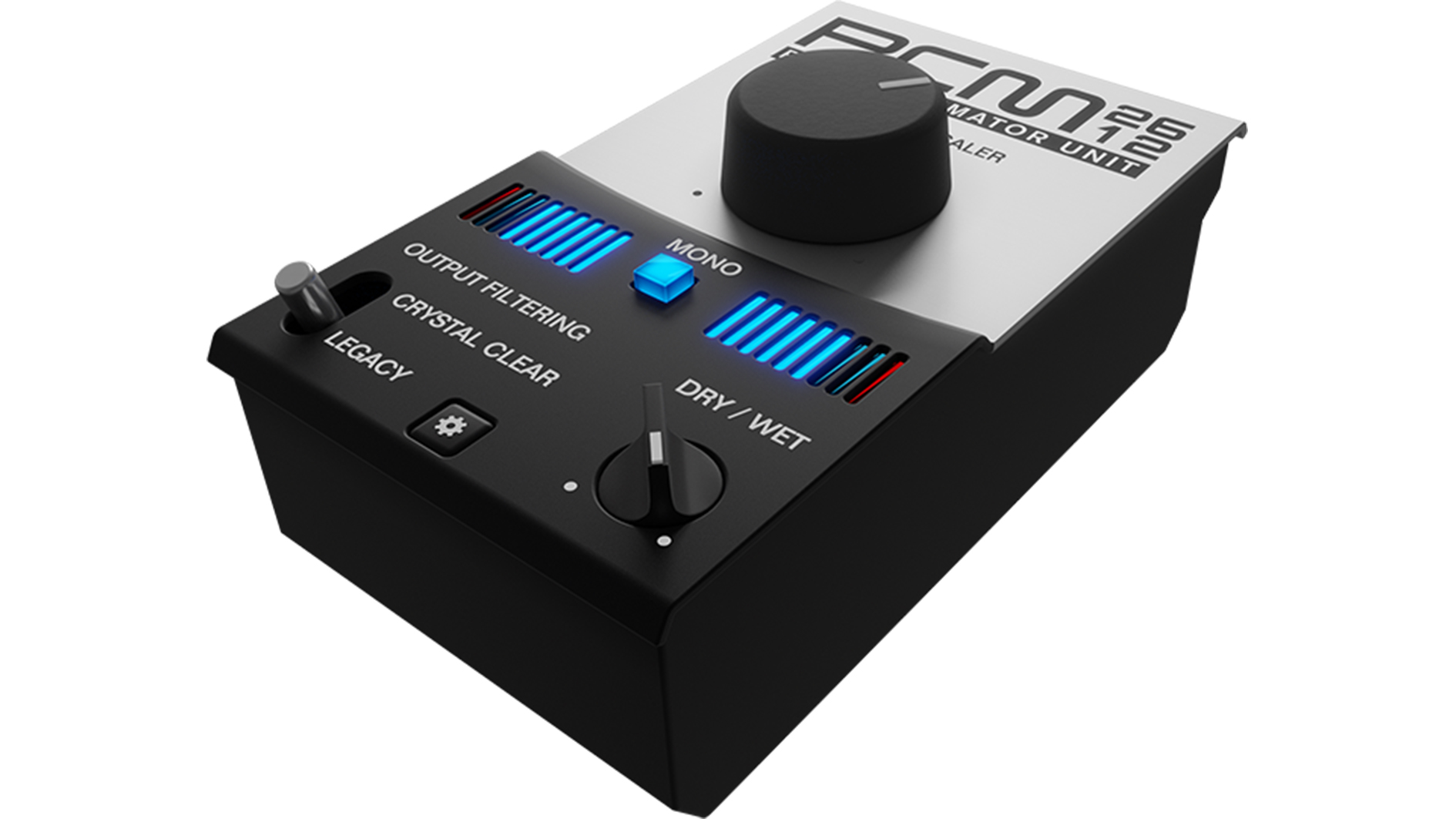
9. Inphonik PCM2612 Retro Decimator Unit
Our expert review:
Specifications
Reasons to buy
Reasons to avoid
The PCM2612 is a bitcrusher based on work that retro experts Inphonik did while working on their emulation of the Yamaha YM2612 sound chip used in the Sega Genesis and Mega Drive.
It can be used to downsample, distort, and crush any input signal, often well beyond recognition, and it's amazing for creative sound design, whether it's a downsampled sweep just before a breakdown, or mangling the guitar to sound like a synth for a chiptune outro.
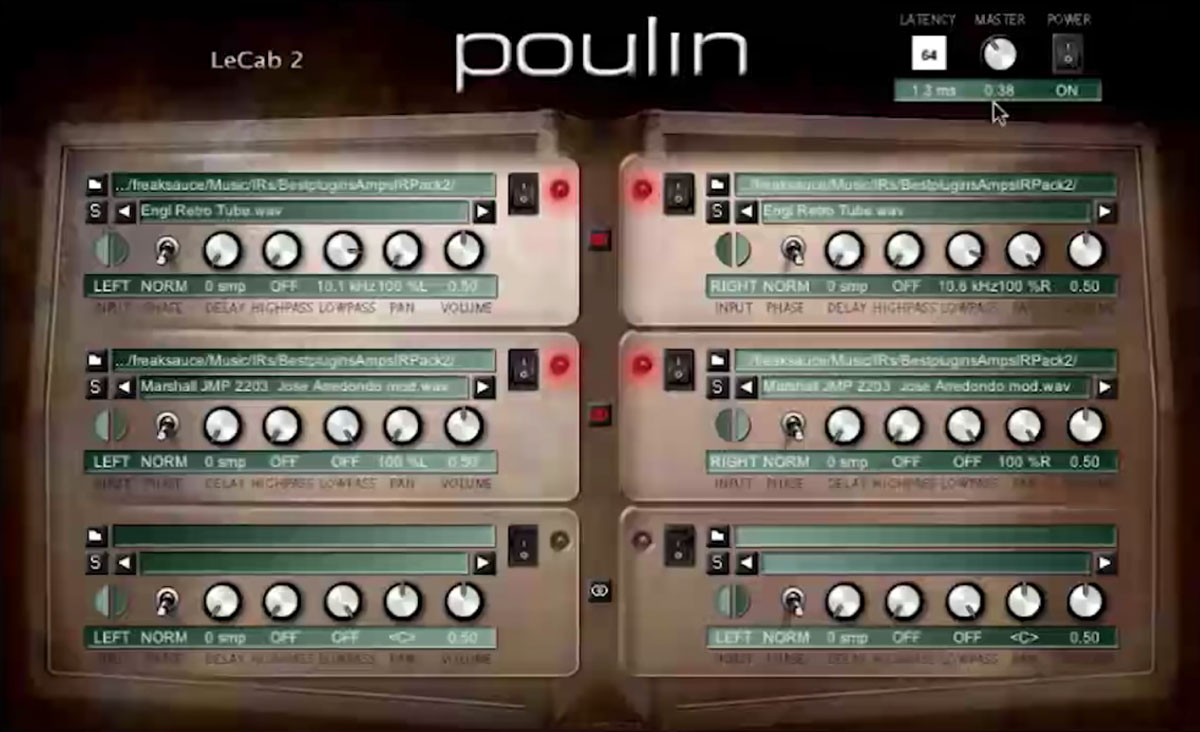
10. Le Pou/Poulin Amps
Our expert review:
Specifications
Reasons to buy
Reasons to avoid
The Le Pou/Poulin amp plugins have been a staple of the free DSP scene for some time, and still represent probably the most comprehensive suite of free amp sims out there.
There are amp simulations for several high-gain and classic amps, like the ENGL Powerball, Bogner Ecstasy, Dual Rectifier and JCM 800, and all do the job pretty well. The IRs and responses may not quite keep up with some of the heaviest-hitting emulations on the market today, but it's doubtful any listeners will notice the difference once they're sitting in a mix.
Get The Pick Newsletter
All the latest guitar news, interviews, lessons, reviews, deals and more, direct to your inbox!
Alex Lynham is a gear obsessive who's been collecting and building modern and vintage equipment since he got his first Saturday job. Besides reviewing countless pedals for Total Guitar, he's written guides on how to build your first pedal, how to build a tube amp from a kit, and briefly went viral when he released a glitch delay pedal, the Atom Smasher.

